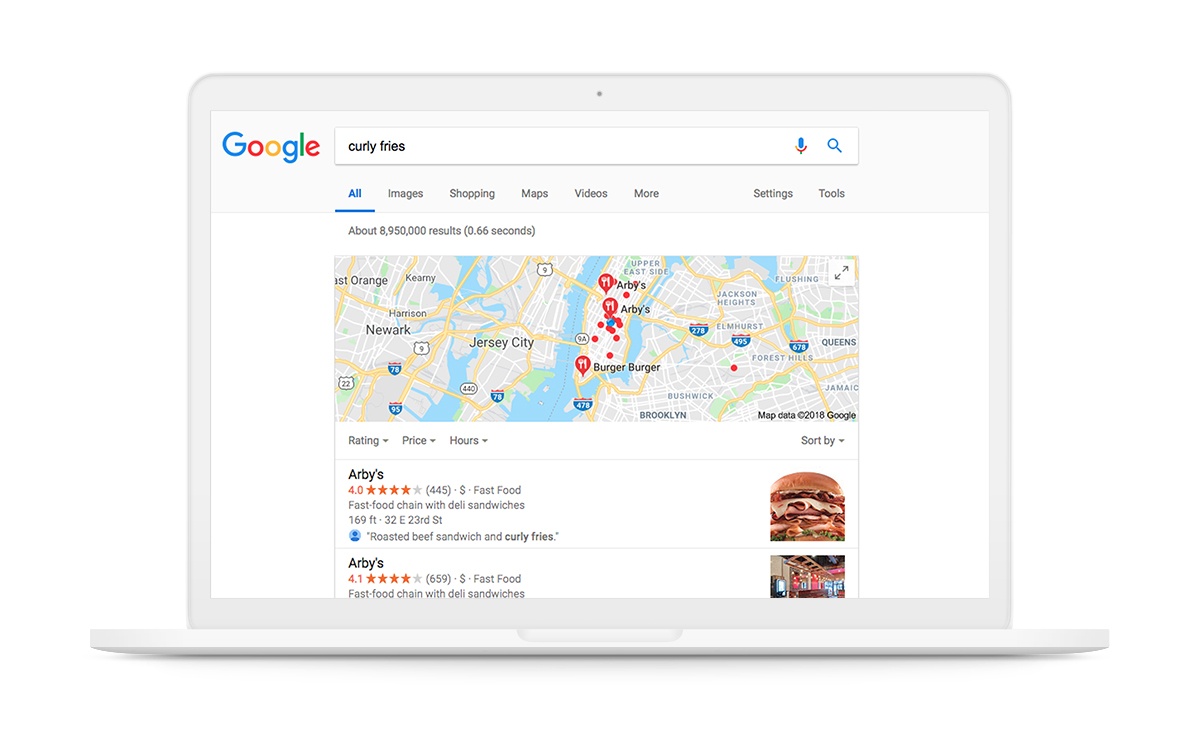Think about the last time you searched online for dinner options. Did you search for a specific restaurant by name, or did you search for a type of food you were craving? If you're like most people, you probably performed a search such as "best tacos near me" or simply typed the words "tacos New York City" into your search engine of choice. This is what's known as an unbranded search — you used the food item you were craving instead of a restaurant's brand name.
As a restaurant brand, it's important to understand that customers are moving further away from your branded website, and are using search as their primary means of finding you. In fact, 73% of high intent traffic happens off of a restaurant's website, and most businesses get 2.5x as much traffic across maps, apps, and discovery sites than on their own website. When it comes to restaurants, that number jumps to 10x more traffic!
So if your restaurant is not showing up for unbranded search queries, you are missing out on 68%* of potential customers.
Here's a few ways you can reach them:
Optimize your menu information.
All of your digital knowledge is important, but in the restaurant world, your menu information is particularly critical. In fact, 83%* of consumers look at a menu online before deciding where to eat. Managing and updating your menu items everywhere will give your restaurant the best chance at being the answer in search.
Manage your attributes.
By managing the unique digital knowledge for each restaurant location (that means paying attention to every attribute, including whether that specific restaurant offers gluten-free options, has outdoor seating, is handicap accessible, has late night hours, etc.) differentiates one restaurant from another in search results.
Create a comprehensive reviews strategy.
Reviews play an important part in how sites like Google, Yelp, TripAdvisor, and Facebook provide answers to hungry searchers. Businesses with the most recent, frequent, and highest-rated reviews are likely to show up more prominently in search results (and in addition, the terms that have been searched will be highlighted in a snippet of the review itself).
For example, when you search on Google for "curly fries" and Arby's shows up, you'll notice that "curly fries" is highlighted in reviews about the brand.

Responding to reviews, both positive and negative, also helps to improve your overall ratings, and encourages more customers to leave reviews when they can see that a representative from the brand is actively responding. The more customers talking about their favorite items on your menu, like curly fries, the more of a positive signal you send to search engines that your restaurant should be associated with those food items in a search query.
Ensuring your restaurant brand comes out on top for unbranded queries across search engines, maps, apps, directories, and voice services all comes down to managing the public facts about your business — everywhere they live online.
*Yext for Food Survey, 2017

